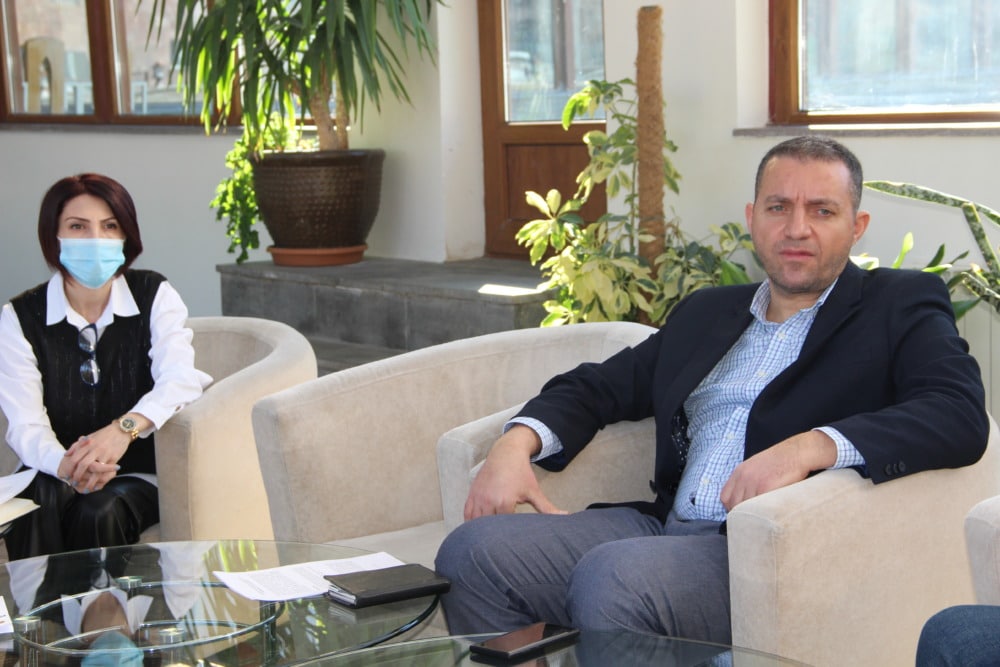In the frames of “Reforming Doctoral Education in Armenia In Line With Needs of Academia, Industry and Current EU Practices” (ARMDOCT) Erasmus + Capacity Building Program “Collaborative Doctoral Education: the Best Practice Discovery and Future Planning” workshop took place today.
The Minister of Economy of RA Vahan Kerobyan greeted the participants and made a speech. According to him, science has no other alternative for the Republic of Armenia but the development based on technological progress. “Obviously, only in that case, we can create a high-value result in Armenia as a small country, and then we will be able to have a strong economy, such as, for example, Israel and Switzerland, etc.,” he said. During the three months of my tenure, when the next cooperation was to take place with the Ministry of Science, Culture and Sports to allocate state orders for postgraduate places, we reconsidered our approach: we suggested presenting some projects to the business that need to be researched, and we have already made a choice. We think that we will have continuous and close cooperation. It is noticeable that the scientific thought helps business, and this is where we need to move forward.”
During a separate working discussion, the members of the project presented the results of the research on promotional tools to science-economy link to the Minister and the representatives of the Ministry of Economy, stating the existing problems and the possible tools for the improvement. An agreement was reached to set up a scientific council to be attached to the Minister of Economy, which will develop a roadmap for science-economy relations in close cooperation with other departments.
Among the urgent issues to be addressed by the representatives of the universities were the issues of taxation of the equipment and materials acquired for scientific research, enabling the provision of tax incentives (including VAT exemption), which will significantly stimulate investments in the field and will increase the efficiency of the process. It was also proposed to launch mechanisms of financial incentives by the state, including tax privileges for organizations conducting joint research to train scientific staff in a certain scientific field. Emphasizing the proposals, the RA Minister of Economy Vahan Kerobyan mentioned that the issue will be studied in more detail, a corresponding project will be circulated shortly.
The Minister also expressed readiness to attract resources and provide financial support to the academic “spin-offs”. To raise awareness and disseminate information as well as promote the cooperation between scientists and the business sector, the representatives of the Ministry expressed their readiness to organize a conference jointly with the ARMDOCT project working group shortly.
Ruben Topchyan, Director of the National Center for Quality Assurance in Vocational Education was also present at the workshop. He pointed out the lack of applicable knowledge as the main issue identified during the accreditation of universities as well as expressed conviction that this program will provide many solutions by creating doctoral schools, as well as provision of university-industry links. He emphasized the importance of the link between doctoral and master education.
During the workshop, the examples of collaborative doctoral programs, university-industry joint research programs were presented by the universities and other social partners. The workshop concluded with discussions on the organization of collaborative doctoral educational programs.

